These projects use community interventions to address the consequences of the COVID-19 pandemic among health disparity and vulnerable populations. They implement and evaluate community interventions testing the impacts of mitigation strategies to prevent COVID-19 transmission in NIH-designated health disparity populations and other vulnerable groups. They may also evaluate already implemented, new, or adapted interventions to address the adverse psychosocial, behavioral, and socioeconomic consequences of the pandemic on the health of these groups.
Improving the Collaborative Health of Minority COVID-19 Survivor & Carepartner Dyads Through Interventions Targeting Social and Structural Health Inequities

This study tests the efficacy of a telehealth-enhanced, RN-Community Health Worker delivered dyad intervention, ICINGS FAM, on quality of life, and health-related outcomes in vulnerable African American adults with pre-existing chronic illness and their informal care partners.
A Technological Intervention to Improve Nutrition among Older Adult Congregate Meal Participants during COVID-19
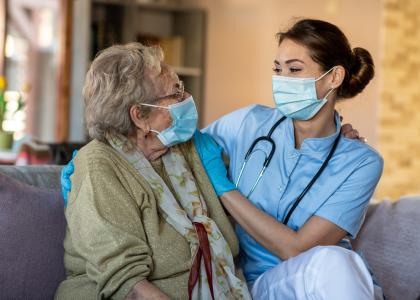
This project extends existing congregate meal programming infrastructure and partnerships with Older Adults Technology Services (OATS) to provide a sustainable approach focused on older adult health.
Leveraging Community Health Workers to Improve SARS-CoV-2 Testing and Mitigation Among Criminal Justice-involved Individuals Accessing a Corrections-focused Community-based Organization
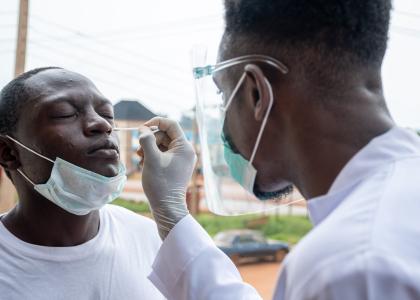
The goal of this study is to test the impact and cost-effectiveness of an intervention to mitigate SARS-CoV-2 transmission among justice-involved individuals recently released from incarceration.
Evaluation of Operation Safer Ground: A Community-Level Rapid Housing Intervention for People Vulnerable to COVID-19

We have the opportunity to examine whether swift provision of housing at the community level mitigates the impact of COVID-19, as well as how doing so may affect the individual, social, and structural factors that contribute to consequences of COVID-19.
Impact of COVID-19 on Care Transitions and Health Outcomes for Vulnerable Populations in Nursing Homes and Home Healthcare Agencies (ACROSS-CARE)
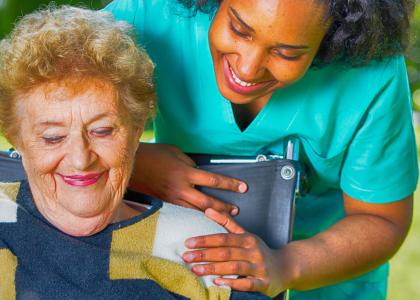
The pandemic has disrupted care transitions from hospitals to home healthcare agencies and nursing homes, which may lead to important health outcomes consequences, including the widening of existing health disparities.
Increasing Peer Support for OUD Recovery during COVID-19 through Digital Health: A National Randomized Controlled Trial

This project uses a randomized controlled trial of a novel mobile peer support app platform among a national sample of 1300 patients in recovery from opioid use disorders (OUDs), as an adjunct to usual care, during COVID-19.
Vale+Tu Salud: Corner-Based Randomized Trial to Test a Latino Day Laborer Program Adapted To Prevent COVID-19
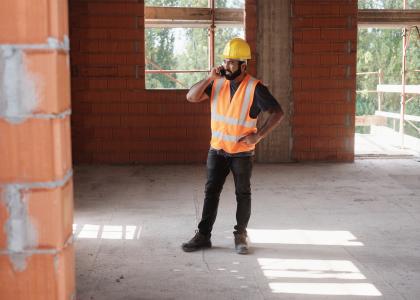
Based on the injury risk-reduction program Vales+Tu (You Are Worth More) that has been successfully tested among Latino Day Laborers, the Vale+Tu Salud (Your Health is Worth More) study will adapt its evidence-based strategies to promote group problem solving and a plan to implement together COVID-19 mitigation strategies
Intensifying Community Referrals for Health: The SINCERE Intervention to Address COVID-19 Health Disparities
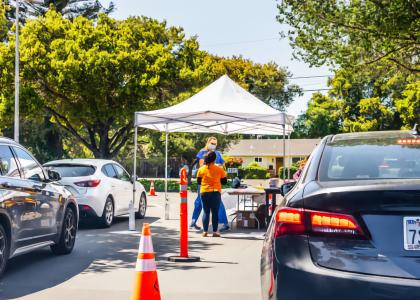
The objective of this study is to determine whether community service use for those with social needs improves general and COVID-related health outcomes, and whether random assignment to intensive follow-up and collaborative goal setting helps overcome barriers to community service use.